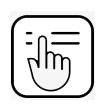
The signs and symptoms of phobias can vary depending on the type of phobia. However, a few common symptoms include:
Panic Attacks
Avoidance behavior
Impact on daily life
Intense fear or anxiety
Physical symptoms

Social Phobia
Social phobia, also called social anxiety disorder, is a mental health condition that causes individuals to experience significant fear or anxiety in social situations. People with social phobia may worry about being judged, scrutinized, or embarrassed by others, leading them to avoid social events altogether. This can significantly impact their daily lives and may require professional treatment to manage.
Find Phobia Specialist Near Me
Agoraphobia
Agoraphobia is characterized by intense fear or anxiety about situations or places where escape or help may be difficult or embarrassing. People with agoraphobia may avoid leaving their homes or being in open spaces, crowds, or public transportation, leading to significant impairment in their daily functioning. Professional treatment, such as therapy, can help manage symptoms and improve quality of life.
Find Phobia Specialist Near Me
Panic Disorder
Panic disorder is an anxiety disorder characterized by recurrent and unexpected panic attacks, which are intense periods of fear or discomfort. Panic attacks can be accompanied by physical symptoms such as heart palpitations, sweating, and shortness of breath. Panic disorder can also be associated with specific phobias, such as a fear of enclosed spaces or heights, and can significantly impact a person's daily life.
Find Phobia Specialist Near Me
Separation Anxiety Disorder
Separation anxiety disorder can occur in children and sometimes adults. It is characterized by excessive fear or distress when separated from a person or place that provides comfort or security. Symptoms can include crying, temper tantrums, nightmares, and physical health complaints.
Find Phobia Specialist Near Me
Animal Phobia
Intense and irrational fear of certain animals, such as snakes, spiders, dogs, or insects characterizes an animal phobia. People with an animal phobia may experience sweating, trembling, and avoidant behaviors when in the presence of the feared animal.
Find Phobia Specialist Near Me
Specific Phobias
Intense and irrational fear of a particular object or situation characterizes specific phobias. Examples of specific phobias include fear of spiders, heights, flying, or enclosed spaces. People with specific phobias may experience physical symptoms such as sweating, rapid heartbeat, and panic attacks.
Find Phobia Specialist Near MeOur team of experts provide the best treatment for phobias. We believe in helping an individual identify unhelpful thinking patterns and replace them with positive affirmations.
We aim to provide a safe space for you to be yourself and be your support system.

Find A Counselor

Check Your Insurance

Book Your Online/In-person Therapy Session

Meet our licensed therapist in person who will work to provide you with customized treatment plans based on your needs.
Interact with our phobia specialist from your comfort place. We’ll provide you with all the support to overcome your phobia-related intrusive thoughts.
Find Your Therapist
Our Therapists | Insurance Coverage | Services Offered | Privacy
Phobias are intense and irrational fears of specific objects, situations, or activities that can lead to avoidance behavior. They are a type of anxiety disorder and can significantly impact a person’s daily life. Examples of common phobias include heights, spiders, and public speaking.
There are many phobias, including specific phobias, social phobias (also known as social anxiety disorder), and agoraphobia. Specific phobias involve fear of particular objects or situations, while a social phobia is characterized by fear of social problems or being judged by others. Agoraphobia involves fear of cases where escape might be intricate, such as crowded places or public transportation.
The symptoms of phobias can include intense fear, anxiety, and panic when faced with the object or situation that triggers the phobia. Physical symptoms such as sweating, trembling, rapid heartbeat, and shortness of breath may also occur. Additionally, people with phobias may engage in avoidance behavior or go to great lengths to avoid the object or situation that triggers their fear.
The most common treatments for phobias include psychotherapy and medication. Cognitive-behavioral therapy (CBT) is often used to help people with phobias identify and challenge the thoughts and behaviors contributing to their fear. Exposure therapy involves gradually exposing the person to the feared object or situation in a controlled and supportive environment. Medications such as antidepressants or anti-anxiety drugs may also be prescribed to help manage symptoms.
You can always find the right therapy for phobias or can find a phobia specialist who is specially certified and licensed in your state from various online and offline platforms. Lifebulb provides the best treatments for phobias, where our expert therapists can assist you in the right direction towards building a healthy and quality life. We offer both in-person and virtual therapy services for all significant phobias. Contact Lifebulb to book an appointment through our 24x7 active helpline. You can always find us online; search’ online counseling for phobias’ or ‘best therapist for phobias’ or ‘find phobia specialist’ or ‘phobia treatment centers near me’ or ‘online therapy for phobias’ or ‘counseling for phobias.’
Look over our expansive list of carefully curated resources to learn about treatment for phobias.